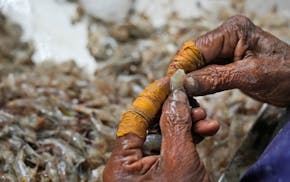Q My 1997 Oldsmobile Cutlass with a 3.1-liter V6 engine has developed a leak in the lower intake manifold gasket. I have had this fixed twice before, and now it's leaking again.
Two garages tell me that if I have this repaired, I need to have the cooling system flushed at a cost of $130 to $150. The dealer's garage tells me this is not necessary and the other garages say this just to increase their income. The manifold repair is quite expensive, at $850 to $925, so I want to be sure it is done correctly, but at the same time I don't want an expense I don't need.
I last had the cooling system flushed at 65,000 miles and now have 82,000. Do I need to have the cooling system flushed when the leaking gasket is repaired?
A Unless the cooling system or coolant has been contaminated, the system does not have to be completely flushed and refilled with Dexcool. After the lower intake manifold gasket is replaced, the system will need to be topped up with fresh coolant, of course.
I still recommend cooling system flushing and coolant replacement at intervals of 30,000 to 50,000 miles, regardless of the type of coolant. With less than 20,000 miles on the coolant in your engine, it should be serviceable for another year or two.
That said, I don't think the suggested flush and refill are necessarily efforts to increase profits. It adds only a small amount to the cost of the repair. And new coolant eliminates any potential issues with corrosion, contamination or depletion of additives in the coolant.
More of a concern to me is the repeated failure of the lower intake manifold gasket -- three times in less than 85,000 miles tells me that something isn't right. GM has issued several service bulletins revising the installation process, use of sealers and torque specifications for the lower intake manifold and gasket on this engine. I'd suggest making sure the technician doing the work carefully inspects the mating surfaces and intake ports on the lower manifold for any evidence of problems, such as erosion, debris, distortion or leaks.
Also, I'd be inclined to try a good-quality stop-leak product such as Mendtite or Solder Seal in the cooling system before replacing the manifold gasket again. This is considerably less expensive than replacing the gasket and may stop or reduce the leak.
Q I have a 1999 Buick Regal that is losing brake fluid. The garage floor shows no evidence of a leak, and the calipers are dry. The engine compartment also is dry, and all brake pads were replaced about two weeks ago. Everything looked good when the wheels were off. Any ideas?
A How much brake fluid is the system losing? Remember, as the brake pads wear, the caliper pistons will extend outward in the calipers to keep the pads in contact with the rotors. As the pads wear, fluid from the master cylinder reservoir will be drawn into the brake system, reducing the level of fluid in the reservoir. I know you replaced the pads, meaning this isn't likely an issue with your Buick. But it is a reminder to all of us to not overfill the master cylinder reservoir during routine maintenance checks. Most reservoirs are translucent and have "MIN" and "MAX" markings to ensure the reservoir has enough brake fluid, but not too much.
Where could the fluid be going? A leaky seal on the pushrod end of the master cylinder could allow brake fluid to creep along the pushrod and linkage under the dash, run down the back of the brake pedal and drip onto the carpet -- perhaps without you seeing it. Check the brake pedal-linkage under the dash and carpet for any evidence of wetness from fluid leaks.
It might be possible for a fluid leak from this seal to allow fluid into the power brake booster, with no evidence of external leaks.
Have you inspected under the vehicle carefully? A brake fluid leak from any of the steel brake lines may "wick" along the brake lines and chassis without dripping to the pavement. Ditto a leak from the proportioning/control valve or the antilock brake system's hydraulic actuator.
And finally, don't forget to check under the rubber boots on the rear wheels' cylinders. Brake fluid can accumulate under the boots from leaking seals but remain trapped under the rubber boots with no visible evidence of a leak.
Bottom line? Find the leak, no matter what it takes. Brake-fluid loss can lead to brake failure -- an event no motorist wants to experience.
Baltimore port to open deeper channel, enabling some ships to pass after bridge collapse

